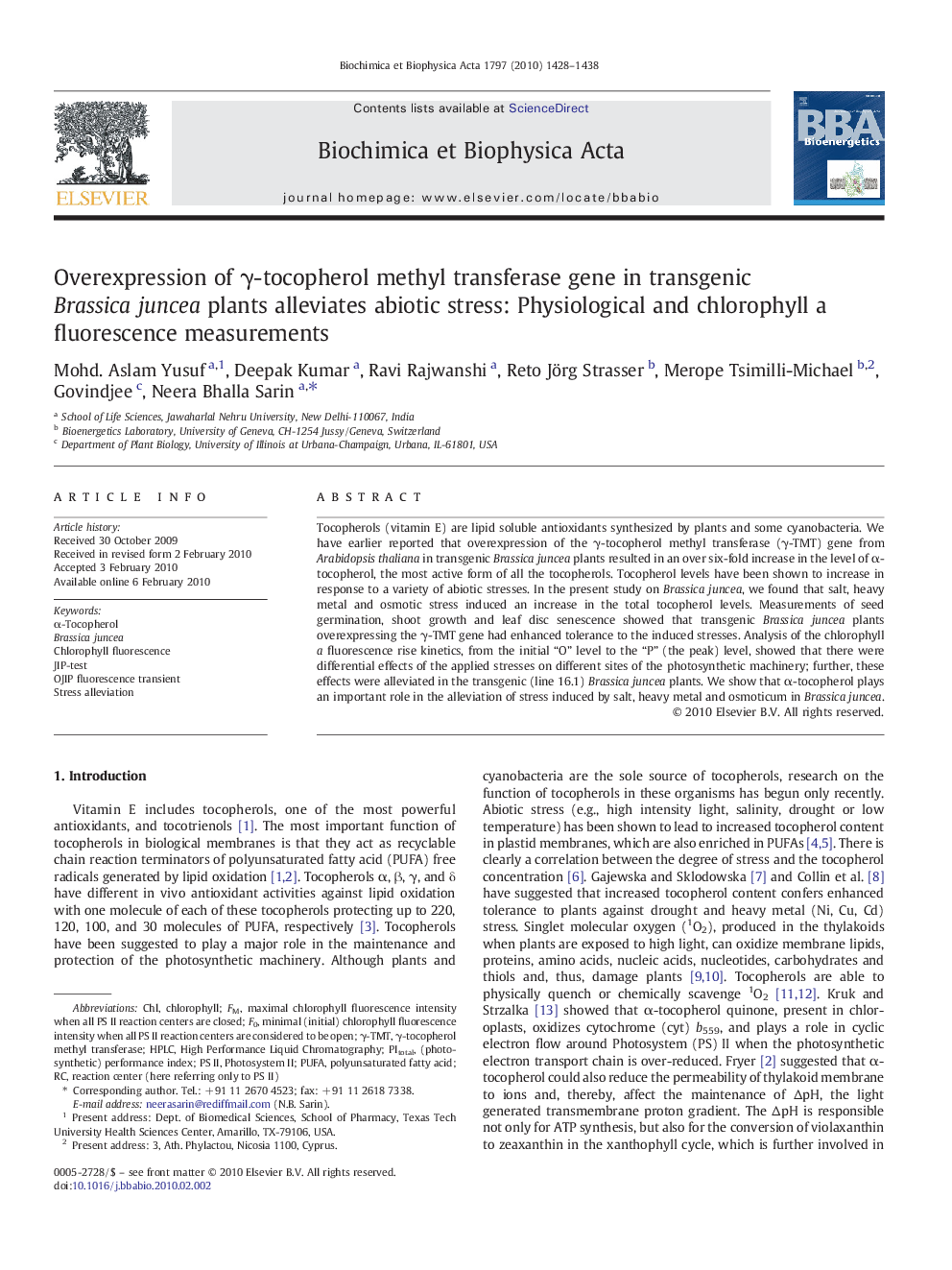| Article ID | Journal | Published Year | Pages | File Type |
|---|---|---|---|---|
| 1942829 | Biochimica et Biophysica Acta (BBA) - Bioenergetics | 2010 | 11 Pages |
Tocopherols (vitamin E) are lipid soluble antioxidants synthesized by plants and some cyanobacteria. We have earlier reported that overexpression of the γ-tocopherol methyl transferase (γ-TMT) gene from Arabidopsis thaliana in transgenic Brassica juncea plants resulted in an over six-fold increase in the level of α-tocopherol, the most active form of all the tocopherols. Tocopherol levels have been shown to increase in response to a variety of abiotic stresses. In the present study on Brassica juncea, we found that salt, heavy metal and osmotic stress induced an increase in the total tocopherol levels. Measurements of seed germination, shoot growth and leaf disc senescence showed that transgenic Brassica juncea plants overexpressing the γ-TMT gene had enhanced tolerance to the induced stresses. Analysis of the chlorophyll a fluorescence rise kinetics, from the initial “O” level to the “P” (the peak) level, showed that there were differential effects of the applied stresses on different sites of the photosynthetic machinery; further, these effects were alleviated in the transgenic (line 16.1) Brassica juncea plants. We show that α-tocopherol plays an important role in the alleviation of stress induced by salt, heavy metal and osmoticum in Brassica juncea.
